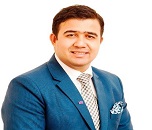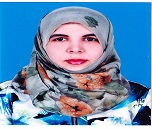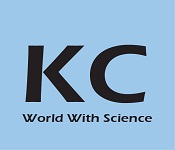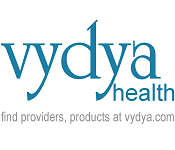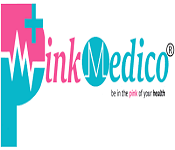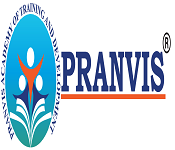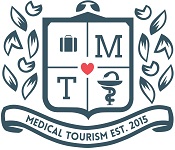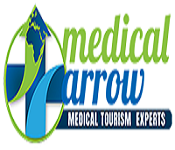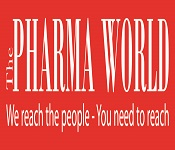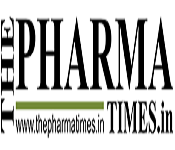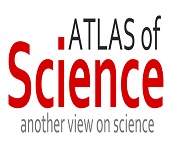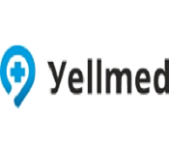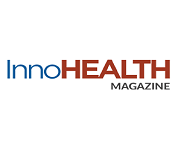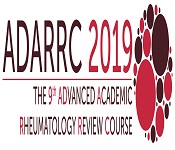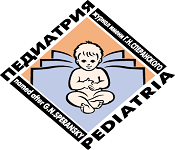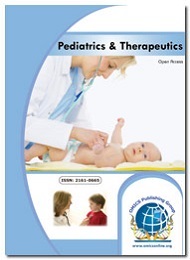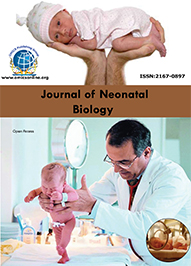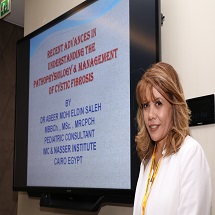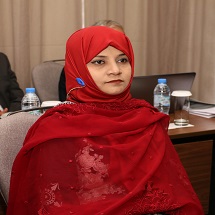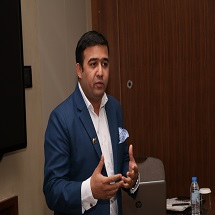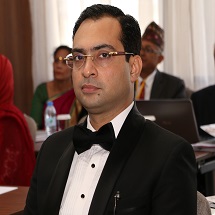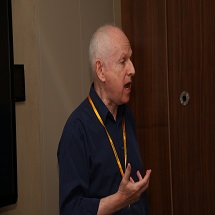Theme: Promoting the Value of Pediatrics, Neonatology & Child Care: Hope of the Future
Pediatrics Neonatal Care 2019
- About Conference
- Scientific Sessions
- Market Analysis Report
- New Updates on Pediatrics & Child Health Care
PEDIATRICS NEONATAL CARE 2019

Update your skills, enhance your knowledge base, and broaden your horizons—all in one place!
Date: November 21-22, 2019
Location: Dubai, UAE
PEDIATRICS NEONATAL CARE 2019 typically incorporate lectures, paper and poster sessions, and panel discussions with prominent international experts and scholars. We also feature product exhibitions, workshops, and student research competitions that generate networking opportunities for all attendees.
The 2019 Conference is bringing together 50+ professionals from 23+ countries for the education, innovation and collaboration – all at one time, all in one place.
Choose from 20+ education sessions, 10+ exhibitors, and endless networking events.
Abstracts are welcome in all areas related to Pediatrics, Neonatology & Primary Care.
Continuing Professional Development (CPD) Credits
Like previous conference, PEDIATRICS NEONATAL CARE 2019 CONGRESS is accredited by the Continuing Professional Development (CPD) credits. The Certification enlightens professionals to authorize their expertise into a structured and established approach towards the hunger of knowledge.
Continuing Professional Development keeps you up to date on current and emerging developments.
Why to attend?
Sceintific Sessions, Workshops, Key note forums, Posters, lunch & learns–provide unique learning and career building opportunities that you just can’t find anywhere else.
Below you’ll find reasons why you should attend our conference and consider sending your employees to our conferences as well.
- Presenting a paper
- Networking for future collaborations
- Strengthening and expanding the human network
- Added Research Value
- Specialty Exhibit Areas- Companies often have tools to display that we haven’t seen yet
- Learning in a New Space
- Break Out of Your Comfort Zone
- The focus and energy of Like-Minded Individuals
- The Serendipity of the Random Workshop
- Lightning Sessions
- Market Debuts
We look forward to collaborating with you at our conference!
Who Attends?
- Pediatric Physicians
- Neonatologists
- Business Entrepreneurs
- Hospital Administrators
- Manufacturing Medical Devices Companies
- Medical College Students
- Training Institutes
- Neonatal specialists
- Pediatric / Neonatal Faculty
- Pediatric/Neonatal Researchers
- Pediatric Scientists
- Clinical Nurse Specialists
- Perinatologists
- Perinatal Nurses/Nurse Practitioners
- Physician Assistants
- Neonatal nutritionists
- Young researchers
- Pediatric Associations and Societies
- Surgeons
Track 1: General Pediatrics
General Pediatrics includes the basic treatments involved for the betterment of children and adolescents. A general pediatrician diagnose and treat child's illnesses, infections, injuries, and other health problems. Focuses mainly on Congenital defects, genetic variance, and developmental issues.
General Pediatricians plan and execute medical care programs to aid in the mental and physical growth and development of children and adolescents. Refer patient to medical specialist or other practitioner when necessary and re-evaluate treatments as necessary.
-
Child psychology
-
Clinical Pediatrics
-
Diagnosis & Treatment
-
Nutrient deficiencies
-
Pain relief therapies and management
-
Pediatric behavioral studies
-
Pediatric developmental changes
-
Pediatric obesity
-
Pediatrics Health
Track 2: Neonatology & Perinatology
Neonatology and Perinatology is related to the physiological and pathological conditions of women during preconception, perinatal, and postpartum periods; and of foetuses, newborn infants during and beyond their initial hospital stay. In some cases, babies are born early. heart, lungs, stomach, skin and some other organs may not be mature enough to function. Neonatologist particularly deals with the most complicated and high-risk conditions. Perinatology is a subspecialty of obstetrics also known as maternal-fetal medicine. Baby with high-risk might be cared by a perinatologist before birth and by a neonatologist after birth. For mother, perinatologists help with previous wellbeing worries, and also entanglements caused by pregnancy. They perform pre-birth tests, give medicines, and perform medical procedures
-
Amniotic Band Syndrome
-
Epilepsy in Neonates
-
Maternal and Fetal Health
-
Maternal-Fetal Medicine
-
Neonatal Disorders
-
Neonatal Respiratory Diseases
-
Neonatal Syndromes
-
Obstetrics & Gynaecology
-
Ultrasound in perinatology
Track 3: Child and Adolescent Behavioral Health
Child & Adolescent Behavioral Health specializes in the emotional and behavioral needs of children, adolescents, young adults and their families. Concerns such as depression and anxiety and behavior problems like ADHD if left untreated, lead to a child's failure in school, separation from their families, drug involvement, delinquency, and suicide. No child/family needs to suffer. Behavioral problems and other Mental health disorders can be a heavy burden for children and teens as well as their families. Access to care is easy and treatment works! Childhood and adolescence are important developmental periods in a person’s life.
-
Addiction and its Disorders
-
Adolescent Psychology
-
Child Mental Health and Psychology
-
Child Psychiatry
-
Geriatric and Paediatric Psychiatry
-
Management and treatment of Mental Health issues
-
Mental Health and Psychiatric Nursing
-
Schizophrenia and Nursing Care
-
Sleep Disorder and Medicine
Track 4: Maternal and Child Care
The Maternal and Child Health (MCH) supports high quality preventive and primary health care for all children, and for the reproductive health care of all women and their partners.
The focus for MCH are all women in their reproductive age groups, i.e., 15 - 49 years of age, children, school age population and adolescents.
Maternal mortality is an adverse outcome, especially in the developing countries there is an increasing concern and interest in maternal and child health care.
-
Healthcare-Nursing
-
Hygiene
-
Hypnobirthing
-
Influence of Drugs and general awareness in Pregnancy
-
Maternal and Child Health
-
Maternal, Infant, and Child Health
-
Midwifery in Pediatrics
-
Obesity and Health disorders
-
Reproductive, Perinatal and Paediatric Epidemiology
Track 5: Premature babies and birth
Worldwide, Preterm birth is the most common cause of death among infants. 15 million babies are born preterm each year. These babies are known as preemies or premies. Some risk factors for a premature birth include diabetes, high blood pressure, being pregnant with more than one baby, being either obese or underweight, a number of vaginal infections, tobacco smoking and psychological stress.
Preemies may need longer or more intense care, medication and sometimes surgery. Complications associated with a premature birth include immature lungs, difficulty regulating body temperature, poor feeding and slow weight gain, cerebral palsy, hearing problems and sight problems.
-
Analgesics
-
Antibiotics
-
Bronchodilators
-
Coping with a premature birth
-
Diuretics
-
Hematologic Agents
-
Infant incubator
-
Infant respiratory distress syndrome
-
Tube feeding
-
Vasopressors
Track 6: Neonatal & Pediatric Infection Disorders
Risk of infection are associated with the Maternal and neonatal environmental factors. The study of these risk factors helps in preventing and managing various infectious diseases in the infants. Worldwide infectious disease still takes a major toll on pregnant women, their foetuses and children. Indeed, it has been estimated that 30–40% of neonatal deaths worldwide are associated with infectious disease. Even in the developed world, there remain considerable challenges for the obstetrician and neonatologist in the management of infectious disease during pregnancy and in the newborn
-
Bone and joint infections
-
Cardiovascular infections
-
Central nervous system infections
-
Fungal infections
-
Gastrointestinal infections
-
Intrapartum/ Postpartum infection
-
Kawasaki disease
-
Respiratory infections
-
Risk factors for neonatal infection
-
Zika virus
Track 7: Neonatal & Pediatric Hematology
Pediatric & Neonatal Haematology involves the study, diagnosis, treatment and prevention of blood diseases and blood-forming organs in the body of infants, children, and adolescents. There are many blood disorders problems in the body with blood vessels, red blood cells (erythrocytes), white blood cells (leukocytes), platelets, bone marrow and lymph nodes that can occur in children that can be diagnosed and treated by a Pediatric hematologist.
Neonatal haematology is a complex and dynamic process in the pediatric population. Surgeons frequently encounter hematologic issues regarding haemostasis, inflammation, and wound healing. The Division of Haematology provides subspecialty care to infants, children, adolescents and young adults with diseases of the blood. They provide genetic counseling and confirmatory testing for families of new-borns with an abnormal haemoglobin detected on the new born state screen. They also provide consultative services for primary care physicians caring for a child with a complex blood disorder or who has signs or symptoms which may suggest cancer.
-
Bleeding and clotting disorders
-
Causes, risk factors and hypotheses
-
Clotting Disorders
-
Drug Development
-
Drug development and diagnostics
-
Educational and preventive measures
-
Risk Factors
-
Tumor Cell Biology
-
Tumor cell biology and research
Track 8: Neonatal & Pediatric Neurology
Babies who experienced a brain injury or have a congenital neurological condition need intense, specialized care. Comprehensive evaluation and treatment for these young children and new-borns’ brains are in a crucial window of rapid development.
If your obstetrician suspects that your baby has a brain abnormality during pregnancy, they refer Prenatal consultations.
The neurologists on the Fetal-Neonatal Neurology improve our understanding of problems in early brain development and to find effective new treatments. Child neurology focuses on diseases and disorders of the spinal cord, brain, peripheral nervous system, autonomic nervous system, muscles and blood vessels that affect individuals in these age groups.
-
Clinical Neurology
-
Neonatal Neurology
-
Neurodevelopmental Disorder
-
Neurological Diagnostic Tests
-
Pediatric Clinical Pharmacology
-
Pediatric Neuroimmunology
-
Pediatric Neurological Disorders
-
Pediatric Neurology
-
Pediatric Neurometabolic Diseases
-
Pediatric Neuro-Oncology
-
Pediatric Neurorehabilitation
-
Pediatric Neurosurgery
Track 9: Neonatal & Pediatric Nephrology
The renal system plays an unbelievable role in the growth and development of infants and children. In neonatal period renal functions undergo continuous adaptive changes. The kidney also undertakes a maturation progression as it transitions from the fetal to the extrauterine environment. Preterm neonates are especially susceptible due to immature of kidneys. The transition from the aqueous environment of the mother’s womb to dry land creates many challenges for the neonate. The infant must have a means to regulate the composition and volume of the extracellular fluid; a task performed by the kidney. The neonatal kidney must be able to excrete free water and conserve sodium while retaining filtered organic solutes. The premature neonate has a much lower glomerular filtration rate than the term neonate. Pediatric Nephrology reports fundamental clinical research and progress associated with any type of the sharp and enduring illnesses that adjust renal capacity in kids.
-
Diabetic nephropathy
-
Dialysis
-
Fetal & Neonatal nephrology
-
Kidney transplants in children
-
Neonatal Bowel Obstruction
-
Neonatal Renal disorder
-
Neonatal renal failure
-
Neonatal Urology
-
Nephrolithiasis
-
The interpretation of x-ray studies of the kidney
-
Tubular diseases
-
Urinary tract infections
Track 10: Neonatal and Pediatric Cardiology
Paediatric cardiologists are doctors who diagnose and treat children with cardiac conditions. They work with patients antenatally (before birth), through childhood and into adulthood Paediatric cardiology is concerned with diseases of the heart in the growing and developing individual. They also need a thorough grounding in general paediatrics, in order to provide all-round patient care.
Paediatric cardiologists treat congenital heart disease (present at birth), arrhythmias (variations in heartbeat rhythm) and disturbances of circulatory function.
The goal of the division of Pediatric Cardiology is to provide the best possible care for infants, children, and adults with all forms of congenital and acquired heart disease. They work in association with a wide range of specialists as part of a multidisciplinary team to assess and treat patients.
-
Diabetic nephropathy
-
Dialysis
-
Fetal & Neonatal nephrology
-
Kidney transplants in children
-
Neonatal Bowel Obstruction
-
Neonatal Renal disorder
-
Neonatal renal failure
-
Neonatal Urology
-
Nephrolithiasis
-
Urinary tract infections
Track 11: Neonatal & Pediatric Pharmacology
Neonatal and Pediatric Pharmacology provides evidence-based guidelines for safe, effective, and rational drug therapy in new-borns, children, and adolescents.
Current research and clinical practice include specific recommendations for all major drug classes and diseases, specific treatment settings such as the pediatric intensive care unit and emergency room.
It also includes adverse effects and interactions and state-of-the-art discussions on pharmacokinetics, pharmacodynamics, pharmacogenetics, pharmacogenomics, pharmacoproteomic, drug development, and clinical trials in infants and children.
It also includes updated information on drug interactions and regulatory issues. It also covers nutrient supplements and biotransformation of medications by the human placenta.
-
Clinical Pharmacokinetics
-
Pharmacogenetics
-
Clinical trials involving children
-
Ethics of drug research in pediatric populations
-
Treatment settings such as the pediatric intensive care unit and emergency room.
-
Adverse effects and interactions
-
Drug development in infants and children
Track 12: Pediatric Cancer and Oncology
In the modern era, Cancer is not a new disease. Pediatric Cancer and Oncology is based on an understanding of the fundamental differences between the tumors of children and adults
Although cancer in childhood is rare, in economically developed countries pediatric cancer is the 2nd leading cause of death among children under 15 years of age. From diagnostic evaluation and therapeutic management plans to extensive psychological and social support we should attack cancer from every angle. Build your support with friends and family. No one should face cancer alone.
-
Adolescent and young adult (AYA) cancer
-
Brain tumors
-
Bone tumors and soft-tissue sarcoma
-
Late effects of childhood cancer
-
Leukemia and lymphoma
-
Neuroblastoma
-
Retinoblastoma
-
Wilms tumour and germ cell tumors
-
Carcinomas
-
Neuroendocrine tumors (carcinoid, NETs)
-
Non-Hodgkin lymphomas
Track 13: Pediatric Trauma & Depression
Trauma is the most familiar cause of invalidation and despair in the paediatric population. child Special knowledge, precise management, and scrupulous attention to details is required for caring the injured child. All clinicians who are in for the care of a paediatric trauma patient, including paediatricians, emergency room clinicians, paediatric emergency clinic and trauma surgeons, must be familiar with every tenet of prevailing trauma care. Unique needs of injured children like Special examination and affection must also be recognized. The treatment of the patients in a state of necessity and handle urgent situations of injury or disease uses both operative and non-operative administration
-
Psychological Trauma
-
Intensive Care in Trauma
-
Blunt Trauma
-
Trauma Therapy
-
Diagnosis, immunization & preventive measures
-
Critical Care in Trauma
-
Elderly Trauma
-
Obstetric Trauma
-
Pediatric Trauma
-
Psychological Trauma
-
Trauma & Critical care Nursing
-
Trauma Emergency Medicine
-
Trauma in Nursing and Midwifery
-
Trauma Mental health & psychiatry
-
Trauma Surgery
Track 14: Pediatric Nursing
Pediatric nursing means the chance to work with some of the most precious and unpredictable creatures on the face of the planet – children. They often get the chance to watch children grow up as well.
A pediatric nurse work in a team of pediatric healthcare professionals. These nurses help to provide medical care for youngsters from the time they are first born until their teenage years.
Proper healthcare is extremely important during childhood. Pediatric nurses must be cheerful and friendly and able to communicate effectively with children and their parents.
Pediatric Nurse Practitioners perform physical exams, diagnose illness and injury and provide education & support to patients and their families.
-
General Pediatric Nursing
-
Pediatric Cardiology Nursing
-
Pediatric Dermatology Nursing
-
Pediatric Gastroenterology Nursing
-
Pediatric Immunology Nursing
-
Pediatric Nephrology and Urology Nursing
-
Pediatric Neurology Nursing
-
Pediatric Nursing in Dentistry
-
Pediatric Nutrition Nursing
-
Pediatric Oncology Nursing
-
Pediatric Ophthalmology Nursing
-
Pediatric Otorhinolaryngology Nursing
-
Pediatric Psychiatry Nursing
-
Pediatric Pulmonology Nursing
-
Pediatric Rheumatology Nursing
Track 15: Neonatal Intensive Care and Nursing
Neonatal intensive care unit (NICU) can be a rewarding career for registered nurses (RNs). NICU nurses care for vulnerable new born children that require intensive nurturing.
With the rapid increase in infants admitted to neonatal ICUs, the demand for NICU nurses and new NICU facilities will continue to rise alongside.
They are directly responsible for monitoring vitals, administering medications and nutrients, and providing care and comfort to new-borns. NICU nurses also educate new parents on the appropriate care for their new born following discharge, and they answer any questions that families may have.
In addition, NICU nurses will be on the front lines when it comes to helping scared parents through what is often a traumatic experience. Emotional stability is extensively crucial for caring very ill or premature infants.
-
Anemia/ Gastroschisis
-
Congenital Heart Defects
-
Critical Care Medicine
-
Gastroschisis
-
Hospital New born Care Services
-
Intrauterine Growth Restriction
-
Intrauterine Growth Restriction (IUGR)
-
Necrotizing Enterocolitis
-
Necrotizing Enterocolitis (NEC)
-
Premature Infants
-
Special Care Nursery
Track 16: Pediatric Surgery
Pediatric Surgery incorporates surgery of embryos, babies, kids, adolescents, and youthful grown-ups. Pediatric surgery appears amidst the twentieth century as the surgical care of birth defectiveness required novel procedures. Pediatric surgery uses distinctive sorts of novel contrivance and techniques that are most regularly used at kids healing facilities
-
Bariatric surgery
-
Pediatric Cardiac Surgery
-
Paediatric Dermatologic Surgery
-
Pediatric Gastrointestinal Surgery
-
Pediatric Head & Neck Surgery
-
Pediatric Neurosurgery
-
Pediatric Oral & Maxillofacial Surgery
-
Pediatric Orthopaedic Surgery
-
Pediatric Endocrine Surgery
-
Pediatric Ophthalmic Surgery
-
Advancements in Pediatric Surgery
-
Pediatric Organ Donation & Transplantation
-
Pediatric Surgical Devices
Track 17: Pediatric Dentistry
Pediatric dentistry provides both primary and comprehensive therapeutic oral health care for newborns and children through adolescence, including those with special health care needs. Preventive dental care includes cleaning and fluoride treatments, as well as nutrition and diet recommendations. It also includes Management of gum diseases and conditions including ulcers, short frenulae, mucoceles, and pediatric periodontal disease.
-
Forensic Dentistry
-
Dental Nursing
-
Dental Pharmacology
-
Dental Sleep Medicine
-
Holistic Dentistry
-
Orthodontics & Dental Implants
-
Oral Cancer
-
Periodontics and Prosthodontics
-
Oral and Maxillofacial Surgery
-
Cosmetic Dentistry
-
Dental Marketing
-
Preventive and Operative Dentistry
Track 18: Psychiatry & Neurodevelopmental Pediatrics
Neurodevelopmental disorders can affect child’s ability to think and disturbs normal day to day functions. Evaluating and treating newborns to young adults who have these, and other types of intellectual and developmental disorders is very crucial. Symptoms like behavior or learning difficulties, autism, brain tumors or other brain and developmental disorders can appear at birth or in later years.
Neuro-Developmental Pediatricians have additional training that focuses on the assessment and management of these developmental problems. The psychiatrists will assess the child and provide treatment recommendations that address any psychiatric difficulties that may be interfering with day to day life.
-
Delayed speech or language
-
Emotional or behavioral problems
-
Gross Motor Delay
-
Overall developmental delay
-
Autism
Track 19: Pediatric, Neonatal Nutrition, and Baby food
Adequate nutrition is of utmost importance between infancy and adolescence. Based on the health benefits of human milk, breastfeeding should be the primary means of nutrition for most infants. Standard infant formulas support adequate nutrition and growth for infants who cannot breastfeed
With increasing survival rates of extremely premature infants emphasis is now focused on the quality of these survivors lives. The most important factor possibly is the premature's ability to survive in the NICU. Neonatal nutrition is crucial for the growth and development of the new born babies.
Baby food is any soft, easily consumed food other than breastmilk or infant formula that is made specifically for new born babies between four-six months and two years old. Introduction of complementary foods at early age may satisfy the hunger of the infant, resulting in less frequent breastfeeding and ultimately less milk production in the mother.
-
Breastfeeding & Complementary feeding
-
Children with Special Health Care Needs
-
Eating Disorders
-
Feeding in exceptionally difficult circumstances
-
Gastroesophageal reflux
-
Infant formula & Preparation
-
Nutrition Support Services
-
Weight Management
Track 20: Humanoid Robots for Pediatric Care
In several scientific areas Humanoid robots are now used as research tools. Robots that are designed to play with children usually look like animals. We have to watch on and give it attention, a toy that children nourished every day.
Robotic technology for healthcare has been an exciting leap. A pediatric pain coach, educator, and friend built upon the humanoid robot platform is Clinically proven to reduce a child's pain by 50% during medical procedures. To interact with pediatric patients during anxiety producing and/or painful procedures to help manage their pain.
Hospitals may be a place of healing, but to a child, hospitals mean needles, strangers in uniforms, mysterious equipment’s, boring wait times.
Humanoid robots perform entertaining activities to reduce anxiety levels in children - and even their parents.
-
Assisting People
-
Blood tests
-
Catheter insertion/removal
-
Collecting Data
-
Dressing changes
-
Giraff Plus
-
Oxygen tube insertion
-
Pediatric Robotic Nursing
-
Robotic Nursing Assistant System
-
Swallow study
-
Vaccinations
Track 21: Congenital malformations & Birth Complications
A birth deformity may happen when baby is in mother’s womb. A congenital disease, otherwise called as congenital disorder deformity, birth imperfection, or irregularity, is a condition existing at or before birth. Mostly occur amid the initial 3 months of pregnancy. Few disorders can be detected before through Perinatal Screening.
Worldwide every year approximately 303 000 new-borns die within 4 weeks of birth due to congenital anomalies. Congenital anomalies can lead to long-term disability, which may have significant impacts on individuals, families, health-care systems, and societies.
-
Down syndrome
-
Birth Defects
-
Upper and Lower Limb Reduction Defects
-
Encephalocele
-
Anotia/Microtia and Hypospadias
-
Congenital heart disease in newborns
-
Congenital dislocated hip
-
Congenital malformations of genital organs
-
Deformations of the musculoskeletal system
-
Phenylketonuria
Track 22: Coping with Loss-Miscarriage Signs and Symptoms
Miscarriages often referred to as spontaneous abortions, typically occur once the baby doesn’t develop ordinarily within the uterus. Most miscarriages occur within the first trimester. The exact causes of miscarriages aren’t well-understood.
Miscarriages might happen due to abnormality with the baby’s genes or chromosomes. Bleeding during pregnancy is one of the foremost common miscarriage symptoms. Another potential miscarriage symptom is less activity of your baby in the womb. Certain health conditions within the mother may also additionally cause a miscarriage.
-
Uncontrolled or undiagnosed diabetes
-
Viral or bacterial infections
-
Sexually transmitted infections
-
Hormone problems
-
Lupus and other autoimmune disorders
Track 23: Preserving Baby Stem Cell
Stem cells are the building blocks of the human body. Stem cells are unspecialized cells capable of dividing for long period of time and can develop into specialized cells.
Stem cells in the human body are found earliest in the embryo. The stem cells inside an embryo will eventually give rise to every cell, tissue and organ in the foetus body.
A stem cell is pluripotent. Unlike a regular cell, stem cells can only replicate to create more of its own kind of cell.
When it divides, it can make any of the different cells in the human body. Stem cells also have the capability to self-renewal.
-
Embryonic stem cells
-
Adult stem cells
-
Induced pluripotent stem cells (IPSC)
-
Umbilical Cord Blood Stem Cells
Track 24: Training Health Care Professionals
Health Care Professionals aims to provide practitioners with in-depth understanding of the importance of health care. It will equip all practice staff with the knowledge and tools they need to facilitate smooth transition from pediatric to adult health care for young adolescents with and without disabilities or special health care needs. Pediatricians, family doctors, nurses, primary and other health care workers should be trained on the relationships between children's health and the environment through the use of harmonized training materials, for the specific needs of countries and professional groups.
-
Healthcare and Maternal-Child Health
-
Healthcare and Opioid Crisis
-
Healthcare and Traditional Medicine
-
Healthcare Planning and Marketing
-
Hospital and Pharmaceutical management
-
Hospital Management and Nursing
-
Pediatrics Healthcare
-
Telemedicine and Healthcare Administration
TOP HOSPITALS IN USA
1. Children's National Medical Center
2. Boston Children's Hospital
3. Children's Hospital of Philadelphia
4. Johns Hopkins Children's Center
5. Rady Children's Hospital
6. Children's Hospital Los Angeles
7. Rainbow Babies and Children's Hospital
8. Children's Hospital of Pittsburgh of UPMC
9. Monroe Carell Jr. Children's Hospital at Vanderbilt
10. UCSF Benioff Children's Hospitals, San Francisco and Oakland
11. Texas Children's Hospital
12. Nicklaus Child
13. Cincinnati Children's Hospital Medical Center
14. Seattle Children's Hospital
15. Children's Healthcare of Atlanta
16. University of California Davis Children's Hospital
17. Ann and Robert H. Lurie Children's Hospital-Prentice Women's Hospital
18. St. Louis Children's Hospital-Washington University
19. Cohen Children's Medical Center
20. University of Iowa Stead Family Children's Hospital
21. Nationwide Children's Hospital
22. University of Michigan C.S. Mott Children's Hospital
23. Lucile Packard Children's Hospital Stanford
24. Children's Mercy Kansas City
25. Children's Hospital Colorado
26. New York-Presbyterian Morgan Stanley-Komansky Children's Hospital
27. University of Rochester-Golisano Children's Hospital
28. Duke Children's Hospital and Health Center
29. Yale-New Haven Children's Hospital
30. University of Virginia Children's Hospital
31. Children's Hospital of Wisconsin
32. Le Bonheur Children's Hospital
33. University of Minnesota Masonic Children's Hospital
34. CHOC Children's Hospital
35. Akron Children's Hospital
36. Doernbecher Children's Hospital at Oregon Health and Science University
37. Mayo Clinic Children's Center
38. Arkansas Children's Hospital
39. Primary Children's Hospital
40. Cleveland Clinic Children's Hospital
41. Nemours Alfred I. duPont Hospital for Children
42. Children's Medical Center Dallas-Parkland Memorial Hospital
43. UCLA Mattel Children's Hospital
44. Inova Children's Hospital
45. Riley Hospital for Children at IU Health
46. Penn State Children's Hospital
47. North Carolina Children's Hospital at UNC
48. UF Health Shands Children's Hospital
49. OSF HealthCare Children's Hospital of Illinois
50. Children's Hospital at Montefiore
51. Advocate Children's Hospital-Oak Lawn
52. Advocate Children's Hospital-Park Ridge
53. American Family Children's Hospital
54. Arnold Palmer Hospital for Children
55. Brenner Children's Hospital
56. Bristol-Myers Squibb Children's Hospital at RWJ Univ. Hosp
57. Children's Hospital and Medical Center
58. Children's Hospital at St. Peter's University Hospital
59. Children's Hospital of Alabama at UAB
60. Children's Hospital of Michigan
61. Children's Hospital of Richmond at VCU
62. Children's Hospitals and Clinics of Minnesota
63. Children's Memorial Hermann Hospital
64. Connecticut Children's Medical Center
65. Cook Children's Medical Center
66. Dayton Children's Hospital
67. Dell Children's Medical Center of Central Texas
68. Florida Hospital for Children
69. Goryeb Children's Hospital
70. Joe DiMaggio Children's Hospital at Memorial
71. Holtz Children's Hospital at UM-Jackson Memorial Medical Center
72. Johns Hopkins All Children's Hospital
73. Joseph M. Sanzari Children's Hospital at Hackensack University Medical Center
74. Kentucky Children's Hospital
75. Levine Children's Hospital
76. Loma Linda University Children's Hospital
77. Maria Fareri Children's Hospital at Westchester Medical Center
78. MassGeneral Hospital for Children
79. Mount Sinai Kravis Children's Hospital
80. MUSC Health-Children's Hospital
81. Nemours Children's Hospital
82. Norton Children's Hospital
83. NYU Winthrop Hospital Children's Medical Center
84. Ochsner Hospital for Children
85. Phoenix Children's Hospital
86. Rush University Children's Hospital
87. Spectrum Health Helen DeVos Children's Hospital
88. SSM Health Cardinal Glennon Children's Hospital
89. St. Louis University
90. St. Christopher's Hospital for Children
91. St. Joseph's Children's Hospital
92. T.C. Thompson Children's Hospital at Erlanger
93. University of Chicago Comer Children's Hospital
94. University of Maryland Children's Hospital
95. Valley Children's Healthcare and Hospital
96. West Virginia University Children's Hospital
97. Wolfson Children's Hospital
98. Women and Children's Hospital of Buffalo
99. Texas Children's Hospital
TOP HOSPITALS IN MIDDLE EAST
1. Hatta Hospital
2. Dubai Hospital
3. Rashid Hospital
4. Latifah Hospital (Al Wasl Hospital)
5. Al Baraha Hospital (Kuwaiti Hospital)
6. Iranian Hospital
7. Jebel Ali Hospital
8. Cedars Jebel Ali International Hospital
9. American Hospital Dubai
10. Canadian Specialist Hospital
11. Emirates International Hospital
12. Neuro Spinal Hospital
13. Belhoul European Hospital
14. Belhoul Speciality Hospital
15. Medcare Hospital Jumeirah
16. Aster Hospital
17. Dr. Sulaiman Al-Habib Medical Group (HMG)
18. MediLux Healthcare Ltd (MHL)
19. Zulekha Hospital
20. Magrabi Eye and Ear Centre
21. Gulf Speciality Hospital
22. NMC Speciality Hospital
23. New Medical Centre
24. International Modern Hospital
25. Lifeline Healthcare
26. Welcare Hospital Garhoud
27. The City Hospital
28. Sheikh Khalifa Medical City General Hospital
29. Al Mafraq Hospital
30.Tawam Hospital
31. Al Ain Hospital
32. Remah Medical Centre
33. Al Silah Hospital
34. Corniche Hospital
35. Al Rahba Hospital
36. Madinat Zayed Hospital
37. Lifeline Hospital
38. Al Salamah Hospital
39. Ahalia Hospital
40. Al Noor Hospital NMC Specialty Hospital
41. Burjeel Hospital
42. Middle East Specialized Medical Care Centre
43. Emirates Hospital
44. Oasis Hospital
45. Hospital Franco-Emirien (Emirates French Hospital)
46. Al Reef International Hospital
47. Dar Al Shifaa Hospital
48. General Medical Centre Hospital
49. American European Medical Centre
50. Al Qassimi Hospital
51. Al - Zahra Private Hospital
52. Central Private Hospital
53. The Royal Hospital
54. Zuleka Hospital
55. GMC Hospital Sharjah
56. University Hospital (Sharjah Teaching Hospital)
57. Al Zahrawi Hospital
58. RAK Hospital
59. Umm al Quwain Hospital
60. Sheikh Khelifa Bin Zayed Hospital
61. GMC Hospital Ajman
62. Ibin Sina Hospital
63. Al Fujairah Hospital
64. Al Fujairah Maternity Hospital
65. GMC Hospital Fujairah
66. Dibba Hospital
67. Al Sharq Hospital
TOP HOSPITALS IN EUROPE
1. Sant Joan de Déu-Barcelona Children’s Hospital
2. Grupo Hospitalario Quirón
3. Vithas Xanit International Hospital
4. HM Hospitales
5. Centro Médico Teknon
6. Anadolu Medical Center
7. Hospital Ruber Internacional
8. Heidelberg University Hospital
9. MITERA General, Maternity-Gynecology & Children’s Hospital
10. Medipol Mega University Hospital
11. Hospital Universitario HM Sanchinarro
12. Hospital Universitario HM Montepríncipe
13. Hospital Clínic Costa Brava
14. Sanitas Hospitals
15.Heidelberg University Hospital
16. Quirón Madrid University Hospital
17. Nisa Pardo de Aravaca Hospital
18. Kadikoy Florence Nightingale Hospital
19. Hospital Quirón Torrevieja
20. Hospital Quirón Valencia Liv Hospital
21. Florence Nightingale Istanbul Hospital
22. Hospital General de Catalunya
23. Gayrettepe Florence Nightingale Hospital
24. Istanbul Memorial Hospital
Market Growth of Pediatrics & Neonatology
Infant Mortality Rate from 1968-2016
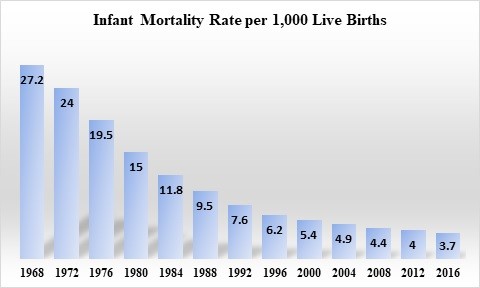
Infant mortality rates varies around the world. Between 1960-2000, the infant mortality rate decreased by half as the number of physicians increased by four folds. Infant mortality will reduce by 30% With the addition of one physician to every 1000 persons in a population, Increasing the number of skilled professionals is negatively correlated with maternal, infant, and childhood mortality.
Global Causes of Child deaths:
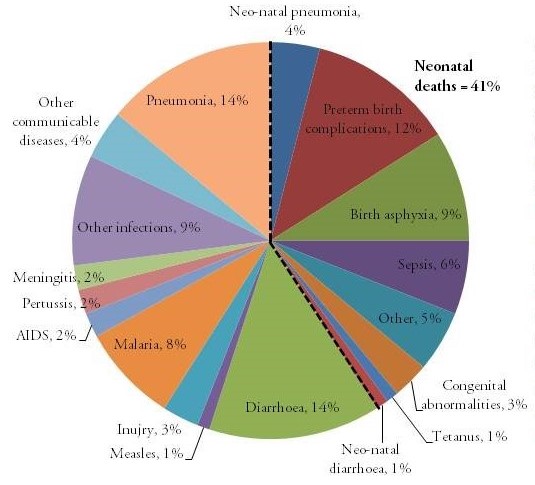
Child mortality isn’t cause by only infection and disorder, it also causes by premature birth, birth defect, new born infection, birth complication, and disease like malaria, sepsis, and diarrhoea. In some countries, malnutrition is the main source of child mortality.
Two-thirds of child deaths are preventable. Recent technological advances in medicine would drastically decrease the infant mortality rate.
Why Dubai, UAE?
30 years ago, Dubai and the UAE were 100% oil-based economy; today oil contributes to just 30% of the [UAE] economy. So, the Dubai journey started with a huge effort of diversification, by seeing what is happening outside and investing heavily to diversify the economy within the UAE. Dubai continues to grow in stature as a hub for regional and international associations and emphasising the opportunities available in the emirate.
The importance of bringing disparate groups together annually to discuss world issues has been central to promote research in Pediatrics & Neonatology. Pediatrics Neonatal Care 2019 has always played an important role in providing such a forum and through the extensive network of contacts and high-profile experts around the globe
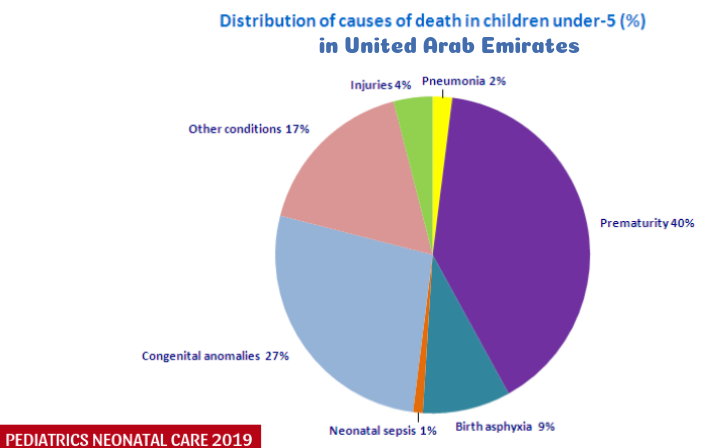
Related Conferences:
Pediatrics Conferences | Healthcare Management Events | Nursing Meetings | Neonatology Conference | Neonatology Nutrition Congress
1.International Conference on Pediatrics, Nursing and Healthcare January 23-24, 2019 Dubai, UAE
2.International Conference on Maternal Fetal and Neonatal Medicine January 30, 31, 2019 Dubai, UAE
3.8th Pediatric Ophthalmology and Optometry Conference April 11-12, 2019 Abu Dhabi, UAE
4.28th World Neonatal, Pediatric and Family Medicine Conference March 21-22, 2019 Dubai, UAE
5.2nd Annual Conference on Pediatric Nursing and Healthcare May 13-14, 2019 Dubai, UAE
6.Annual Midwifery and Pediatric Nursing Congress August 12-13, 2019 Abu Dhabi, UAE
7.Annual Congress on Pediatric Toxicology January 28-29, 2019 Osaka, Japan
8.16th International Conference on Pediatrics and Pediatric Cardiology February 18-19, 2019 Amsterdam, Netherlands
9.World Pediatric Allergy and Immunology Summit February 22-23, 2019 San Francisco, California, USA
10. 5th World Congress on Pediatric Surgery and Pediatric Surgeons February 25-26, 2019 | Courtyard Seoul Times Square | Seoul, South Korea
11. 12thAnnual Meet on Pediatric Surgery and Pediatrics February 27-28 2019, Paris France
12. 21st World Congress on Pediatric Oncology and Cancer Care March 01-02,2019 Radisson Hotel Narita Tokyo Japan
13. 30th Global Summit on Pediatrics and Neonatology March 15-16, 2019, Novotel Brisbane, Brisbane Australia
14. 26th Annual Congress on Neonatology & Clinical Pediatrics March 25-26, 2019 Hong Kong
15. 22ndAnnual Congress on Neonatology & Pediatrics April 01-02, 2019 Auckland, New Zealand
16. 2nd Pedia Gulf 26 - 27 July, 2018 Sheraton Montazah, Alexandria Egypt
17. 2019 AAP National Conference & Exhibition New Orleans, Ernest N. Morial Convention Center October 25-29, 2019
18. PEDICON 2019- 56th Annual Conference of the Indian Academy of Pediatrics June 02-October 02,2019, India
19. 9th International Conference on Birth Defects and Disabilities in the Developing World October 23-26, 2019 Colombo, Sri Lanka
20. 9th Euro paediatrics Congress Dublin, Ireland 13 – 15 June 2019
Other Related Associations
1. American Academy of Pediatrics
2. American Pediatric Surgical Association
3. Mexican Board of Pediatric Surgery
4. Society of Pediatric Dermatology
5. Japanese Society of Pediatric Cardiology
6. American Association of Critical-Care Nurses
Middle East:
1. Egyptian Society for Healthcare Development
2. Nigerian Medical Association
3. Islamic Association of Iranian Medical Society
4. Islamic Association of Physicians of Iran
5. Israel Medical Association
6. Jerusalem Academy of Medicine
7. Estonian Medical Association
8. Medical Association of Jamaica
9. Hong Kong Medical Association
10. Turkish Medical Association
11. Syrian American Medical Society
Asia Pacific:
1. Asian Pacific Pediatric Association –APPA Kuala Lumpur, Malaysia, Asia
2. The Malaysian Pediatric Association Kuala Lumpur, Malaysia, Asia
3. Asian and Oceania Society for Paediatric Radiology Pok Fu Lam, Hong Kong, Asia
4. Academic Pediatric Association Asia Pacific Pediatric Association
5. Asia Pacific Paediatric Orthopaedic Society
6. Asian Society for Pediatric Research
7. Asian Society for Pediatric Infectious Diseases
8. Asian and Oceania Society for Paediatric Radiology Pok Fu Lam, Hong Kong, Asia
9. Pediatric Cardiac Society of India
Europe:
1.International Society for Social Pediatrics & Child Health London, UK, Europe
2. Baltic Association of Paediatric Surgeons Tallinn, Estonia, Europe
3. European Society For Developmental Perinatal & Paediatric Pharmacology Berlin
4. Society of Chiropodists and Podiatrists London, UK, Europe
5. European Society for Paediatric Neurosurgery Athens, Greece, Europe
6. Italian Society of Pediatric Rome, Italy
7. European Paediatric Association
8. European Academy of Paediatrics
9. European Society for Paediatric Research
10. European Society of Paediatric and Neonatal Intensive Care
11. International Society for Social Pediatrics & Child Health London, UK, Europe
12. European Society For Developmental Perinatal & Paediatric Pharmacology Berlin, Germany, Europe
13. Society of Chiropodists and Podiatrists London, UK, Europe
14. European Society for Paediatric Neurosurgery Athens, Greece, Europe
15. Italian Society of Pediatric Rome, Italy, Europe
16. Russian Society of Cardiology
USA:
1. American Pediatric Society Texas City, USA, North America
2. Asian Society for Pediatric Research (ASPR)Virginia, USA, North America
3. Society for Pediatric Pathology (SPP) New York, USA, North America
4. Children’s Leukemic Research Association New York, USA, North America
5. American Academy of Paediatric Dentistry Chicago, USA, North America
6. American Academy of Paediatrics Washington, USA, North America
7. Canada Academy of Pediatric Dentistry Ottawa, Canada, North America
8. Alliance Societies – POSNA Rosemont, USA, North America
9. Asian Society for Pediatric Research (ASPR)Virginia, USA, North America
10. Society for Pediatric Pathology (SPP) New York, USA, North America
11. Children’s Leukemic Research Association New York, USA, North America
12. American Academy of Paediatric Dentistry Chicago, USA, North America
13. Canada Academy of Pediatric Dentistry Ottawa, Canada, North America
14. Alliance Societies – POSNA Rosemont, USA, North America|American Heart Association; ACC
Things to Know About Bariatric Surgery for Pediatric Patients
Obesity is not exclusive to adults. Every day more and more children are finding the risk for overweight and obesity. As childhood obesity becomes a growing problem, Bariatric surgery is one alternative.
Co-Morbidities (obesity-related health problems) :
- Type 2 Diabetes Mellitus (T2dm)
- Obstructive Sleep Apnea
- Cardiovascular Disease Risks
- Predictor of Metabolic Syndrome
- Quality of Life
- Depression
- Eating Disorders
How Do We Treat Childhood Obesity?
Treating childhood obesity is similar to treating obesity in adults. Various treatments are available for treating childhood obesity, such as behavioral and lifestyle modification, pharmacotherapy and bariatric (weight-loss) surgery
What is bariatric surgery?
Through five small holes in the belly, doctors staple the stomach shut, reducing the size of it by about 90%.
Types of bariatric surgery :
- Gastric bypass: The adolescent population have demonstrated equivalent safety and efficacy in the RYGB
- Adjustable gastric banding: Effective and attractive treatment option in carefully selected patients, because AGB offers an excellent safety profile and lower risk of postoperative vitamin deficiencies
What is the success rate?
Researchers found a weight reduction of 27 % three years after surgery. They also found a significant quality of life improvements and reduction of obesity-related conditions.
Risks and outcomes :
- Psychosocial risks - Improvement in depression, eating disturbances, and quality of life after weight loss is induced by bariatric surgery
- Nutritional risks - Low levels of iron, vitamin B12, vitamin D, and calcium are common problems after RYGB.
- Pseudotumor Cerebri: Increased pressure inside the skull and symptoms can include a headache, visual changes, ringing in the ears, nausea, and vomiting.
- Pregnancy risks - Recent investigation has reported a two-fold increase in pregnancy in adolescent bariatric patients. Female adolescents should be informed about increased fertility after weight loss and that pregnancy during the first 18 months after bariatric surgery has possible risks.
Some people think this is an easy way out. There is nothing easy about surgery and lifelong food quantity restrictions
Conference Highlights
- General Pediatrics
- Neonatology & Perinatology
- Child and Adolescent Behavioral Health
- Maternal and Child Care
- Premature babies and birth
- Neonatal & Pediatric Infection Disorders
- Neonatal & Pediatric Hematology
- Neonatal & Pediatric Neurology
- Neonatal & Pediatric Nephrology
- Neonatal and Pediatric Cardiology
- Neonatal & Pediatric Pharmacology
- Pediatric Cancer and Oncology
- Pediatric Trauma & Depression
- Pediatric Nursing
- Neonatal Intensive Care and Nursing
- Pediatric Surgery
- Pediatric Dentistry
- Psychiatry & Neurodevelopmental Pediatrics
- Pediatric, Neonatal Nutrition and Baby food
- Humanoid Robots for Pediatric Care
- Congenital malformations & Birth Complications
- Coping with Loss-Miscarriage Signs and Symptoms
- Preserving Baby Stem Cell
- Training Health Care Professionals
To share your views and research, please click here to register for the Conference.
To Collaborate Scientific Professionals around the World
| Conference Date | November 21-22, 2019 | ||
| Sponsors & Exhibitors |
|
||
| Speaker Opportunity Closed | Day 1 | Day 2 | |
| Poster Opportunity Closed | Click Here to View | ||
Useful Links
Special Issues
All accepted abstracts will be published in respective Our International Journals.
Abstracts will be provided with Digital Object Identifier by







